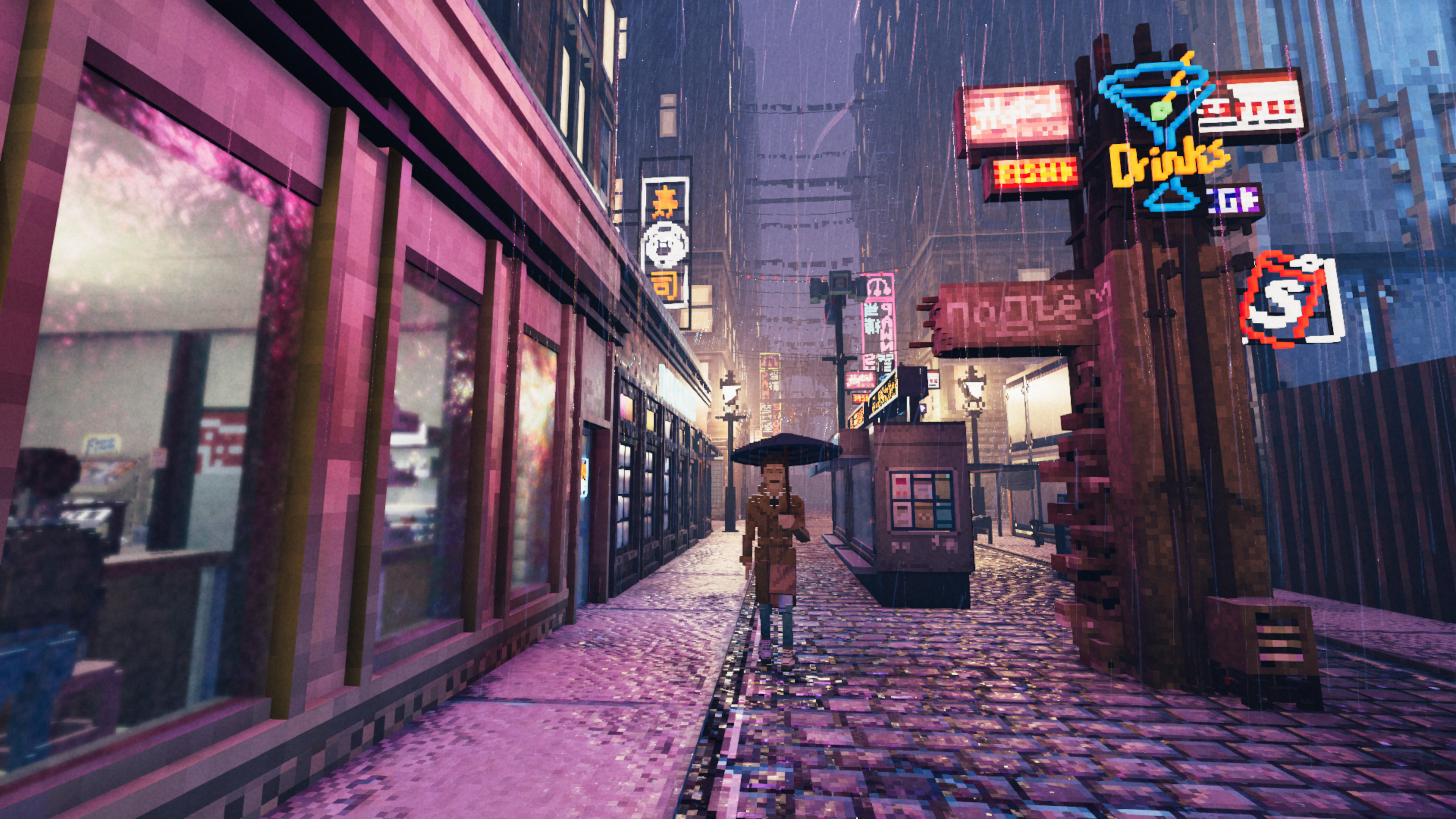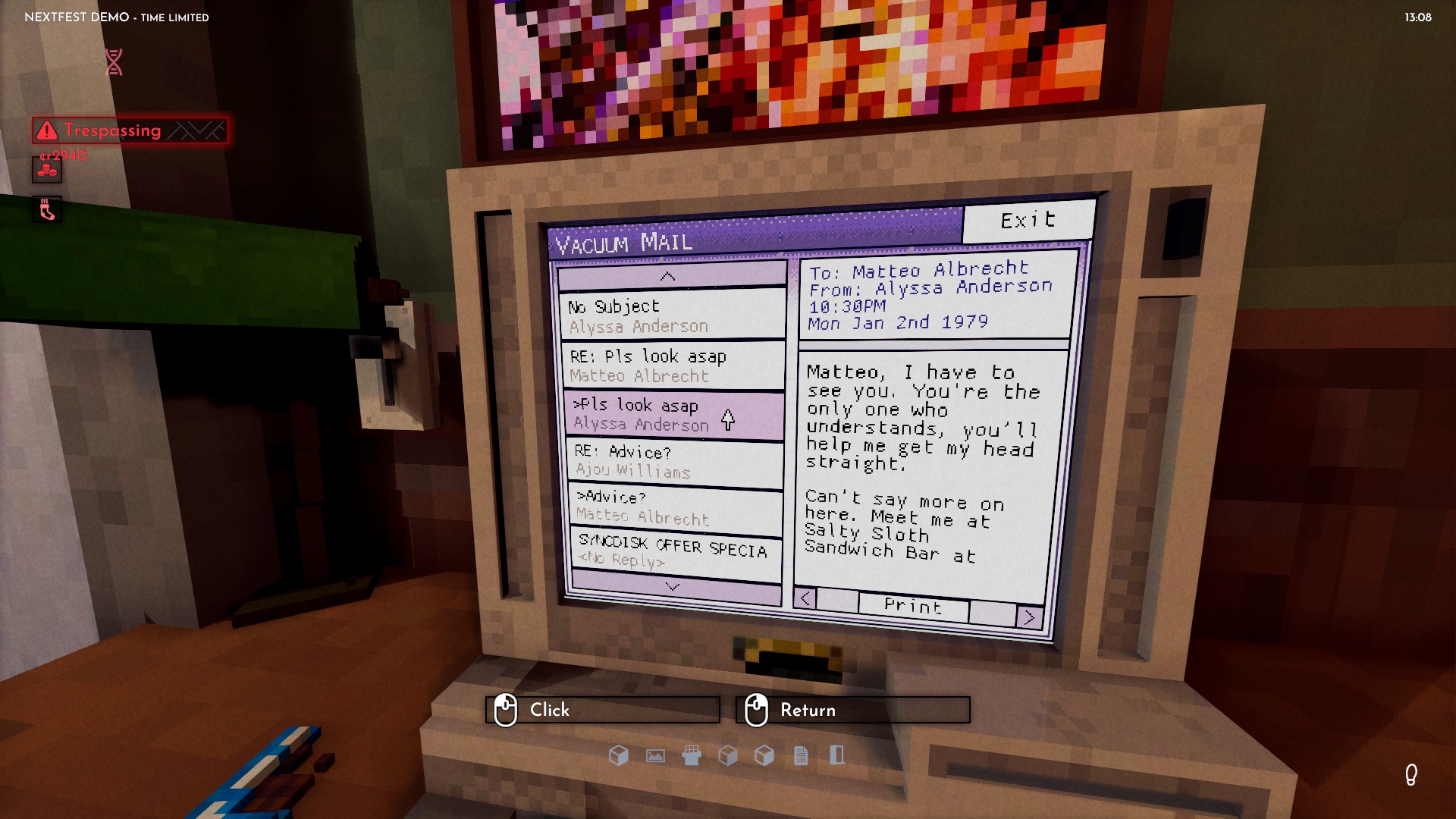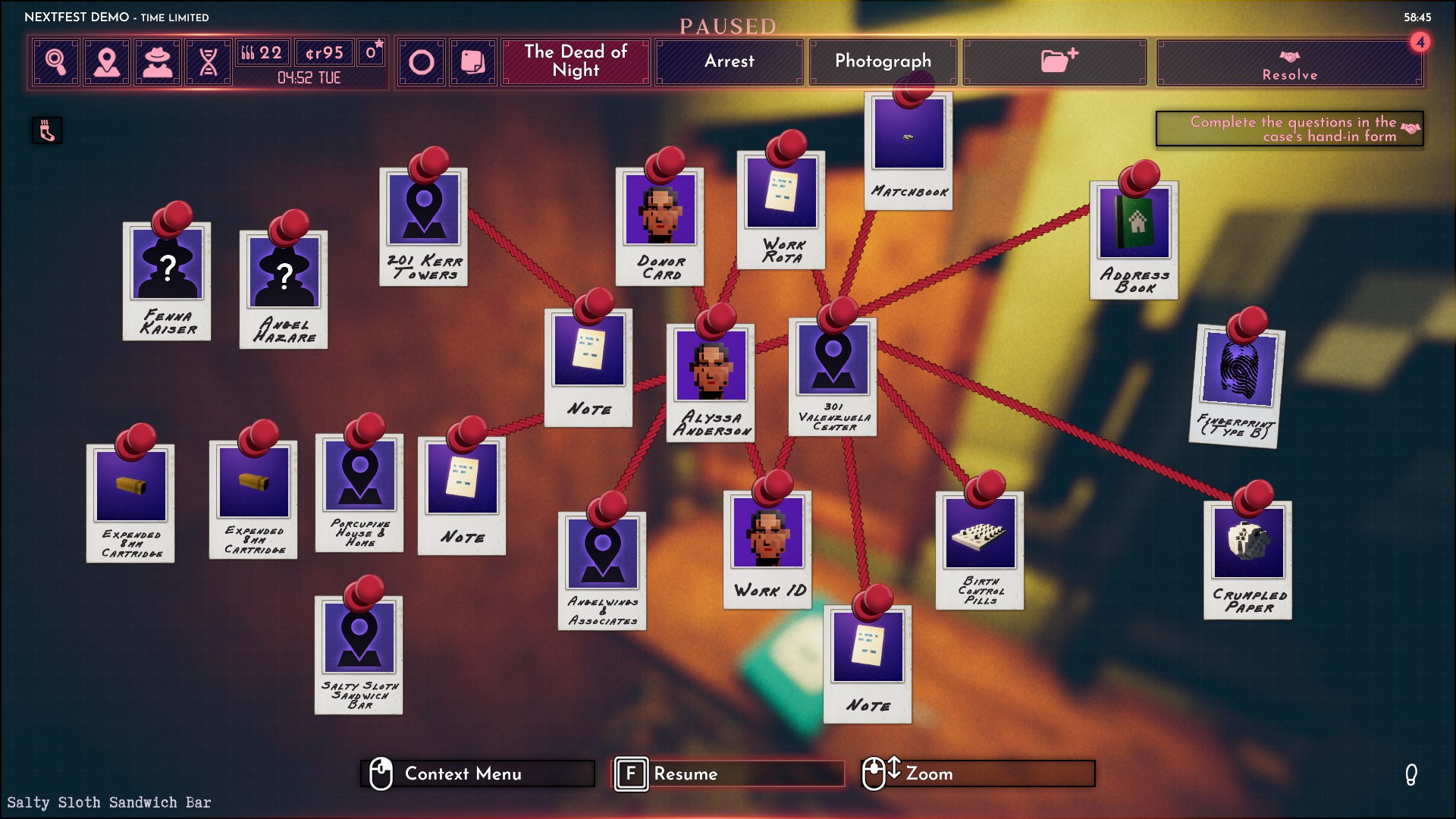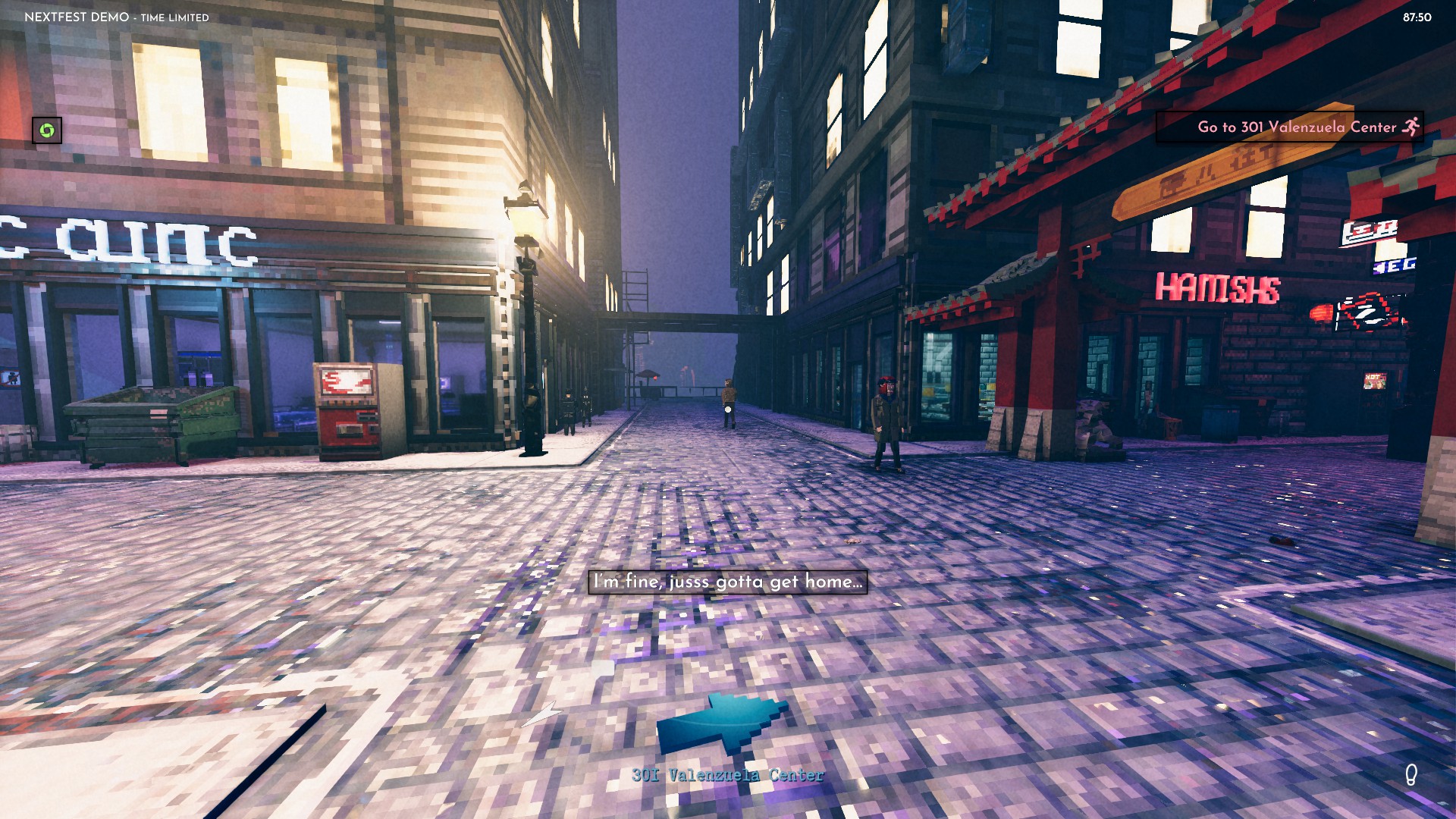Shadows of Doubt is Deus Ex for incorrigible snoops, and you should drop what you're doing and play the demo right now
Blow the case wide open in this investigative immersive sim.

As I reach the end of the 90-minute timed demo of Shadows of Doubt, I still haven't solved my first homicide case. Honestly, though, I've only got myself to blame. The problem with being a rule-bending cyber-noir PI with total freedom to snoop, it seems, is that when you're scouring a suspect's apartment for clues or browsing through their hard drive, it's easy to get distracted by the mundane details of their lives.
At one point, I break into the staffroom of a diner—apparently the last place my murder victim visited before turning up dead at home. Once inside, I locate the manager's passcode, carelessly scribbled on a notepad, then rifle through the joint's safe before logging into its computer to scan staff records and security tapes. The crucial clue I uncover here is that the victim met someone in the restaurant, and from the camera footage I even get an ID. But while I could simply leave at this point to chase my new lead, I spend a further five minutes sitting at the screen, sifting through emails, printing out the staff database and pulling every face from the recordings. Sure, it pays to be nosy as a detective, but perhaps not quite to this degree.

My rigour here isn't merely a matter of idle curiosity, though. Another reason I get caught up in such trivial pursuits is that the systems at work in Shadows of Doubt are so damned impressive. In a way, this is an indie Deus Ex, with the focus mainly on the quiet bits where you sneak through vents, shut down alarms and rummage through cupboards for safe codes. But at the same time, investigations are far more free form, with all kinds of possible routes leading from corpse to killer.
When you begin a new game of Shadows of Doubt, it takes around a minute to procedurally generate all the buildings, interiors, air ducts and bits of evidence that link together to form cases, but also complete identification details for every person in the game world and the relationships between them. That means anyone you see walking down the street in the compact cityscape you're plopped into has a name, unique physical features, an address, a job, a blood type and even fingerprints, and all that info is discoverable if you know where to look. Given more time with the game, it should be an interesting challenge to go around town trying to fill in the profiles of every individual you meet.
Thankfully, when you do want to get on with some paid work, the game gives you a breadcrumb trail to follow. The demo centres on a single prefabricated case—although there are side jobs you can accept for extra cash—which begins with a mysterious note shoved under the door of your apartment demanding you find a certain person. A quick check of the phone directory allows you to match that name to an address, but by the time you head over they're already dead. Searching the victim's apartment turns up further persons and places of interest, such as the diner, which might lead to yet more clues, or up a blind alley. Either way, as long as you chase down every lead, you should eventually figure out who has blood on their hands.
Strung up

The task is made easier by some nifty tech in your possession. Pinning all your efforts together, quite literally, is your virtual investigation board. Any clues, objects or identities you find appear as a little card that can be arranged on an imaginary corkboard, even linked together with bits of coloured string. The tools of your trade, meanwhile—not only a keen eye, but also lockpicks, a code breaker and a fingerprint scanner—will help you access all that juicy evidence. With enough picks and alone time you can get through any door, while the codebreaker will brute force a path through electronic keypads. Locating fingerprints, of course, can be crucial to your case, although it's not easy to get citizens to offer up their digits to aid with identification.
Indeed, talking to the locals and asking about their personal lives, or anything unusual they might have seen, tends to result in brusque dismissal. Evidently, the dystopian nature of the randomly structured city—set in an alternate late 20th century—has left folk rather grumpy and untrusting. And that's if you catch them on a good day. You certainly don't want to run into anyone when you're on restricted private property, like in their bedroom rifling through the drawers in their bedside table, because they'll either start punching you or run off to raise the alarm (unless you've disabled it first).
The biggest gaming news, reviews and hardware deals
Keep up to date with the most important stories and the best deals, as picked by the PC Gamer team.
In such situations, fighting back is an option, but in this respect Shadows of Doubt is very much not in the vein of Deus Ex. Instead of cybernetically enhanced arm blades and assault rifles, you can put up your dukes and exchange blows, or maybe whip out a kitchen knife that you picked up from a nearby worktop. Much of the time, though, a hasty retreat is more advisable. On one occasion, I smashed my way out through a window as security guards closed in on my position, dropping to the streets below, at the cost of a few cuts and a leg injury (fortunately, I soon found a medical vending machine and bought a bandage and splint to restore full health). The next time I was in such a situation, I made a dash for the air vents and stealthily crawled out unseen. Although sadly I took a wrong turn and emerged into another apartment, whose owner beat me up anyway.

It has to be said, however, that these were among the more coherent close encounters I had with the citizens of Shadows of Doubt. In a world as open and procedural as this, it's no surprise that the AI struggles to maintain a sense of realism, and the game is more comfortable with itself when you're alone. One character failed to notice me in his apartment despite standing right next to me, for instance, simply because I'd switched the light off, while the servers in the diner were apparently oblivious to me shimmying behind the counter to pick the lock on their staffroom. I also got a little confused when I knocked on the entrance to one apartment to check if the owner was home, and when he opened the door, a random passer-by in the corridor nonchalantly wandered inside.
Hopefully, such quirks will be reduced by the time Shadows of Doubt launches and won't interrupt the flow of the investigation too much. At least the game doesn't punish you too severely for running into trouble—the one time I blundered towards some armed guards, I managed to get away with some cuts and bruises. Regardless, even with the occasional quirk, there's so much to like here, from the moody voxel environments, ambient sounds and rain effects, to the density of stuff to discover and ways to discover it. You can't but forgive some erratic behaviour.
I began a second playthrough, hoping to get to the bottom of the case this time, but it's very hard to stay focussed when there's so much stuff to do. After exiting my apartment building and wandering into the local pharmacy, I got side-tracked into disabling the security cameras, breaking into the office, robbing the place and downloading all the staff data. Old habits die hard. Later, I returned to buy some bandages and the chemist was back, sitting behind the counter. Now I knew his name, even his working hours, thanks to reading his employee file earlier. With skills like that, I'm becoming a pretty good private detective. Just don't pay me by the hour.

